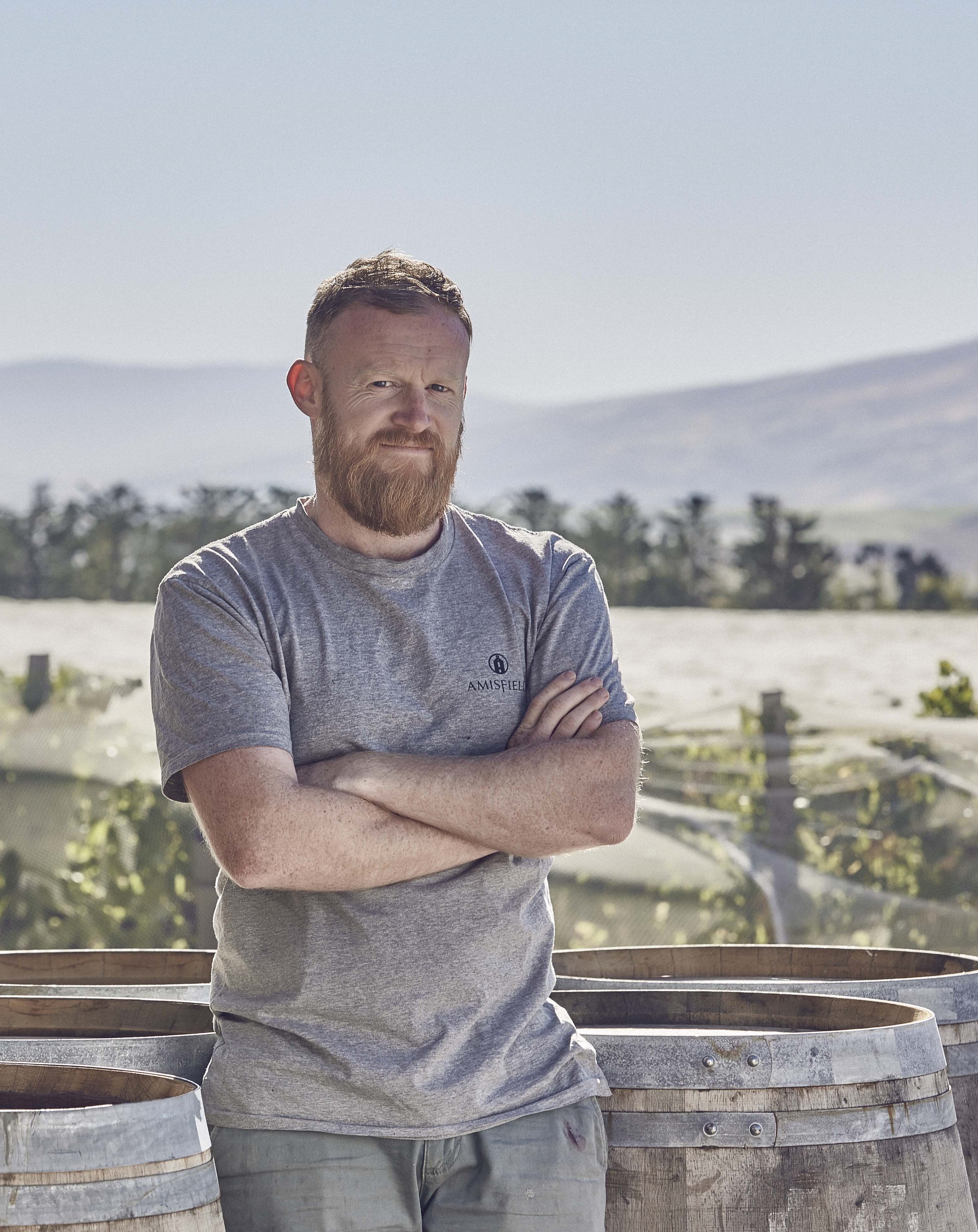
Sophie Preece
Ben Leen never tires of the view at Amisfield, where audacious guinea fowl strut the grounds against a backdrop of organic vines and the snow-capped Pisa Range. The stunning view from the Central Otago vineyard and winery is made even better for “knowing that we’re farming it as well as we can for the future”, says the winemaker.
It’s Barbecue Thursday, and Ben is eating an ice cream as he talks of a culture of care for the people, soils, vines and wines of the estate. He’s “proud as punch” that that care is rewarded by a long list of accolades, including Riedel Vineyard of the Year at this year’s New Zealand Organic Wine Awards, following the win of Sustainable Vineyard of the Year in 2023, and Vineyard of the Year in 2020 and 2022.
“Knowing that we’re farming it as well as we can for the future.” Ben Leen
John Darby and his family, who established Amisfield in 1988, chose to follow organic viticulture to protect the longevity and legacy of the land, Ben says. The transition began in 2014, the year he arrived as a cellar hand, with complete BioGro certification in 2021. Viticulturist André Lategan, who’s lived on the vineyard since 2002, took a staggered approach, watching to see how the vineyard would respond.
As time and trials went on, they found incremental gains that could be measured, but also a “feeling of knowing that you’re doing better”, Ben says, talking of a sense of accomplishment in seeing the soil and vines grow into balance, while also protecting the people that work there. “Knowing that from that point forward, it was going to be a healthier environment for the staff.”
Organic certification has equivalency with Sustainable Winegrowing New Zealand, and both certifications make winegrowers more conscious of water use, carbon emissions and soil health, Ben says. At Amisfield, the last of those pillars has been a key focus in the past 10 years, with long-term trials of subsurface irrigation enabling healthy cover crops with less competition from weeds, and less water use.
But beyond the soil, there are frequent discussions at Amisfield (perhaps on Flat White Monday and Barbecue Thursday) about the likes of electrification, or using drones to scare birds, saving the diesel used in putting out nets. Those conversations are increasingly typical among other wine companies as well, Ben says. “Everyone just thinks a bit more deeply... It’s not just, ‘should we do this? Yes, or no?’ It’s, ‘what are the implications from an environmental standpoint?’ To have this open mind and this innovative approach to problem solving, without ever taking focus off the goal of growing high-quality grapes.”
This article was first published in New Zealand Winegrower magazine issue 149 and is republished with permission.












